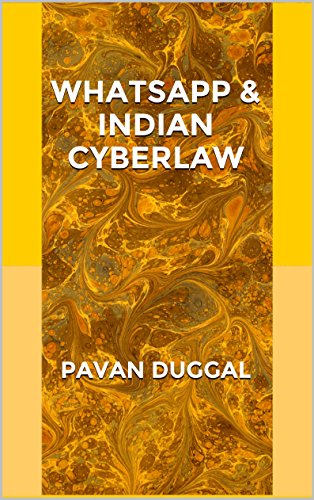“One of the best Cyberlaw ebooks of all time” – BookAuthority
WHATSAPP & INDIAN CYBERLAW
India is already undergoing a huge mobile revolution. The numbers of smartphones that are continuing to be sold in India are an indication of the growing dependence on smartphones by Indians. Consequently, Indians are using various mobile applications. WhatsApp is one of the most popular mobile applications in India. Primarily because WhatsApp is free, it appeals to large number of Indian users who find the said platform very convenient for the purposes of communicating audio, video, image and text. However, the usage of WhatsApp has got distinct legal ramifications in India, thanks to the Indian Cyberlaw being in place.
This eBook seeks to analyze the legalities concerning use of WhatsApp in India. It examines interplay between the services offered by WhatsApp and the various provisions of the Indian Cyberlaw. It also highlights the use of WhatsApp for various cyber crimes and cyber terrorism purposes by various vested elements. Finally, it also seeks to examine other challenges pertaining to use of WhatsApp by various actors as the mobile messaging platform.
This eBook should be of tremendous value for any user of WhatsApp in India as also any other mobile or smartphone users in India who is warning to understand the legal ramifications of using mobile messaging applications like WhatsApp.
This eBook is an absolute must for all stakeholders in the digital and mobile ecosystem as also all students of law, legal practitioners, law libraries, law enforcement agencies, lawmakers and other stakeholders in India who want to understand the legalities concerning WhatsApp and its use in India.
This eBook is authored by Pavan Duggal (pavanduggal.com), Asia’s and India’s foremost expert on Cyberlaw and Mobile Law, who has been acknowledged as one of the top four cyber lawyers of the world. This eBook’s Author runs his niche law firm Pavan Duggal Associates, Advocates (pavanduggalassociates.com/) which is working on all aspects concerning technology and the law.
© Pavan Duggal, 2015


